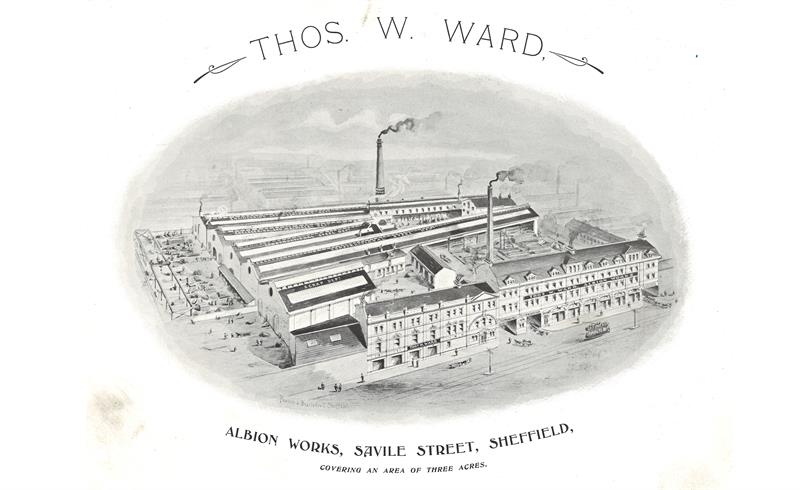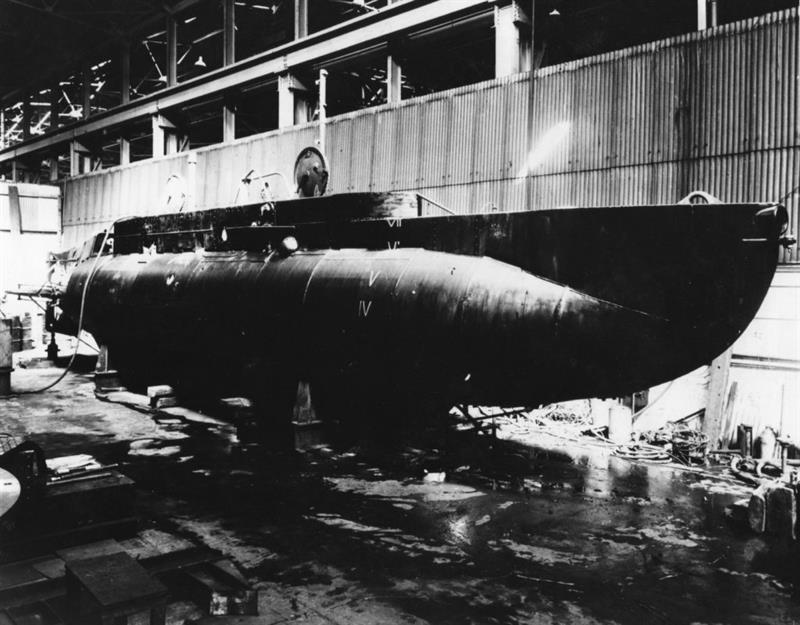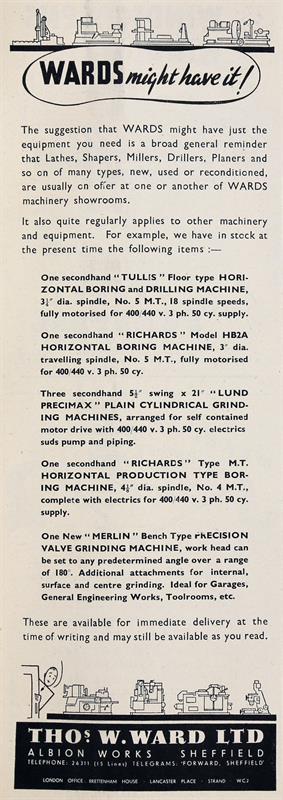During World War II, the Ward had notable involvement in construction of roads, runways, and railway sidings. The company’s present-day expertise of machine tool reconditioning was vital at the time to war production and utilised to the full.
When it was decided to remove the nation's aircraft factories to secret sites less vulnerable to enemy bombing (so-called shadow factories), the organisation was entrusted with the huge task of moving and reinstalling the hundreds of machine tools and ancillary equipment used at the many plants. It was accomplished with a loss of less than 24 hours' production time per machine. Lord Beaverbrook described the job as “the most gigantic of its kind in history”.

Thos W Ward's Albion Works site
Many other wartime projects involved Ward. Two of these have passed into history-Mulberry Harbour and PLUTO. Mulberry harbours were temporary portable harbours developed by the UK to support the rapid offloading of cargo onto beaches during the Allied invasion of Normandy in June 1944. The two prefabricated ports of Mulberry, each the size of Gibraltar, were manufactured in sections and towed to their destination off the coast. Ward co-ordinated the supply and distribution of materials for this unique construction, which greatly simplified the problem of maintaining supplies to the Allied Armies in Europe. And Ward excavators were called upon for PLUTO, or the 'pipe-line under the ocean' by which fuel was fed in vast quantities across the Channel.
During this time, Ward had become the parent of a diverse group of companies, each of which made its own unique contribution to the war effort. This included: Midget submarines, tanks and naval guns, supplied by Marshalls of Gainsborough; cranes, winches and excavators from Smiths of Rodley and Smiths of Keighley; specialised castings from Widnes Foundry; huge tonnages of cement from Ketton for airfields, roads, defence constructions, and the many wartime civil engineering projects throughout the country.

Ward Group company Marshalls was involved in the supply of midget submarines
Ward was also instrumental in rescuing the famous Triumph car manufacturing company from oblivion. Triumph got into difficulties around this time and Ward purchased the assets and goodwill in August 1939, with part of the factory used during the war for making aero engines and components.
There were many difficult and dangerous salvaging operations to carry out throughout the war, including the demolition of almost 100 vessels, ranging from submarines to the 56,000 ton liner 'Majestic'. Such was the reputation of Ward in this activity that when the pocket battleship 'Graf Spee' was scuttled on 17 December 1939 by her German crew outside Montevideo harbour, it was the company's experts who were flown to the scene.
When hostilities ceased, Thos. W. Ward Ltd was again at the centre of the mammoth job of clearing up. Bomb-damaged sites were levelled, construction equipment and materials provided for their redevelopment. The many skills of the Ward Group were now focused upon the task of serving industry in an increasingly competitive post-war world.
An acute awareness of the value of good publicity gave rise to the slogan “Ward’s Might Have It”, attracting both national and international recognition as a wide-ranging source of industrial goods.

An advert of the day - Wards might have it!




